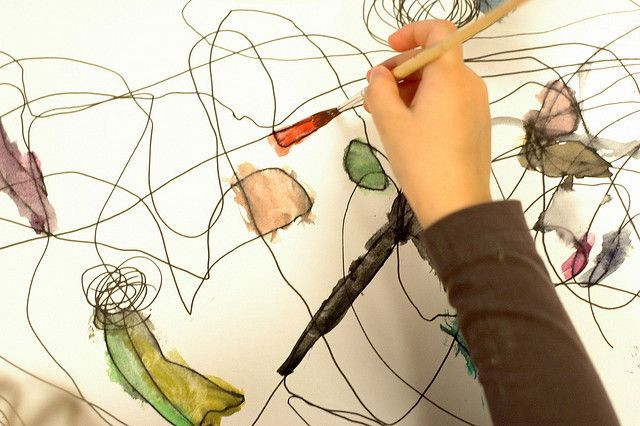Depression Among Preschool Teachers May Predict Behavioral Problems In Young Students

Preschool students are more likely to experience intense feelings of sadness or aggression if their teachers suffer from depression, a new study finds.
Young minds are notoriously absorbent, soaking in their surroundings on almost a consistent basis. Now research suggests these impressionable youngsters risk internalizing their teachers’ depressive symptoms by modeling their behaviors at home. Interrupting this effect, the researchers explain, may be done with the help of concerted parents who can recognize behavioral changes early and take action.
“We know high-quality early childhood education is critical and we also know that very few programs in the United States are truly high in quality,” Cynthia Buettner, associate professor of human sciences at The Ohio State University and senior author of the study, said in a news release. “So how do we get there?”
Answering that question may save the futures of countless 3-year-olds. Children who suffer behavioral problems in childhood face an increased risk for numerous challenges later in life, including low academic achievement, poor social skills, and greater propensity to commit a crime. In the meantime, they are also more likely to manifest a wide variety of reactions, both internally and externally: Children with behavioral issues tend to be more violent and aggressive, but also more depressed and angry.
Breaking this cycle of aggression breeding aggression may indeed take a collective effort, Buettner says. “It’s incredibly important. Teachers can have a really big impact on children’s development.”
To better understand teachers’ roles in molding young kids’ behavior patterns, the group of researchers collected data from the Fragile Families and Child Wellbeing Study. This study has collected information on single-parent families living under low socioeconomic conditions in 20 large U.S. cities. A total of 761 families and teachers were included in the OSU research. (They also collected data from mothers on children’s behavior, because mothers and teachers “sometimes disagree on these issues,” said study leader Lieny Jeon.)
The team found that when teachers were reporting their kids’ behavior, teacher depression had a direct relationship to children’s externalizing and internalizing behaviors. But when mothers were reporting their children’s behavior, teacher depression did not predict externalizing behaviors. What’s more, when researchers considered the child-care climate — either at home or at school — they found that a poor-quality climate only resulted in behavioral issues when teachers were reporting.
This could have several implications, though the largest one, as Jeon sees it, involves the unhealthy climate of the classroom. Kids that are raised in nurturing homes may not model their teachers’ depression because they aren’t immediately exposed to it. It’s only once they reenter the classroom that the environment turns toxic. In essence, it’s the only energy they can feed off.
A natural limitation of the study is that teacher depression isn’t necessarily a cause of the kids’ behavioral issues. Kids that grow up in poorer households are, by nature, at a greater risk for mental health issues and certain patterns of behavior. The study’s findings may actually paint the reverse scenario: High-spirited teachers could be brought down by the daily struggle to keep kids from acting out. As a result, they get depressed. And the kids’ mothers, being none the wiser, report everything’s business as usual.
Whatever the case may be, teachers are still depressed. “They don’t have the time or resources to address their own psychological difficulties, or access to any specialized mental health services,” Jeon said, because they are too busy putting out fires. Plus, their salary is peanuts, which doesn’t exactly add much incentive to improve.
Fixing the problem may be as simple as understanding the problem. Once administrators and parents understand, and can empathize with, the plight of preschool teachers, they can take actionable steps to reestablish the classroom as an environment for learning — not one of suffering.
Source: Jeon L, Buettner C, Snyder A. Pathways from teacher depression and child-care quality to child behavioral problems. Journal of Consulting and Clinical Psychology. 2014.



























